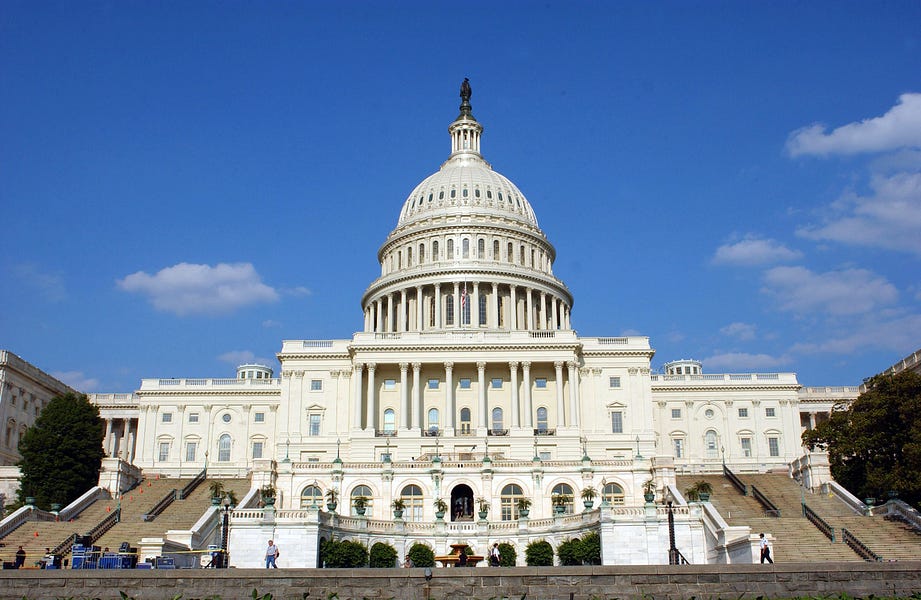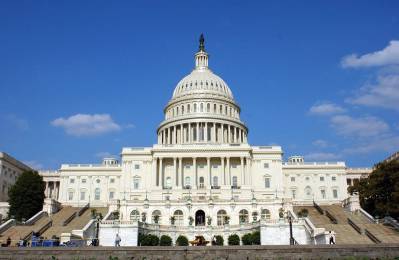The House impeachment managers state in their brief: “Our constitutional system simply cannot function if the President, acting to extend his own grasp on power against the expressed will of the people, prompts an armed attack against a coequal branch that prevents it from performing its core constitutional responsibilities.”
I agree entirely, except for one thing—the word “coequal.”
Listen to representatives and senators, Democrats and Republicans, talk about impeachment or other issues that touch on the relationship among the three branches of government, and you’ll hear the word “coequal” over and over again. In 2019, when Nancy Pelosi was sworn in as speaker of the House for the second time, she proclaimed Congress “coequal to the presidency and judiciary.”
Richard Nixon must be having a good laugh.
Until Watergate, the notion that the three branches of government were coequal was considered far-fetched. This coequal doctrine was largely an effort by the Nixon administration to keep congressional investigators at bay.
What does coequal mean? Well, equal means being the same in status. One hundred pennies equals one dollar. Coequal means having equivalent standing. A quarterback and kicker are equally on the same team, but they are not coequal in their power, pay or responsibilities. At least that’s what the Founding Fathers meant by coequal. Dictionaries have since muddied the waters.
The Founders never imagined that the legislative, executive, and judicial branches were coequals. Their intent, made plain in the structure of the Constitution, was for Congress to be supreme. That’s why Article 1 is about Congress—literally the first branch—and its powers.
Indeed, if you search through the Federalist Papers, the word coequal appears only eight times. Not once does it say that the three branches of the federal government are coequal. They reserved that term to describe the standing of the federal government to the states or the relationship between the House and Senate.
Think about what the Founders were most passionate about. “Taxation without representation” probably tops the list. Well, only Congress can tax. Indeed, all tax bills are supposed to start in the House, because the House is elected by the people. (Senators were originally elected by the states.) Congress is also the only branch of government with “the power of the purse.” It alone (at least according to the Constitution) can declare war. Also, in case you forgot, it writes the laws.
Taxing, spending, declaring war, writing laws—that’s Congress’s bag, baby.
Now ask: What can Congress do that the other branches can’t? Well, through impeachment, it can fire the president, vice president, or any member of the judiciary. Indeed, with the exception of the Supreme Court, it creates every other federal court. It also creates every federal agency and department. Everyone who works for Uncle Sam, except for the president and vice president, has a job created by Congress. And their job—including, for the most part, the president—is to do what Congress says.
As historian Jay Cost puts it, “If I get to tell you what to do, but you do not get to tell me what to do, who is actually in charge?”
Recall that the Founders were drawing on the English experience—and their own as colonists. They were partisans of Parliament, not the crown. Their biggest worry was that a president would become a new king, which is why they loaded up Congress with all the power.
Against this backdrop, the Donald Trump-inspired siege on the Capitol is not just a shocking affront to the constitutional order; Congress’s response is a sign of how damaged that order already was. In earlier eras, the reaction from Congress wouldn’t have been partisan but institutional. Don’t get me wrong: Trump deserved impeachment for his role in the January 6 attack. That most congressional Republicans responded as if an outgoing president were their king is repugnant.
But Pelosi’s response, from refusing to consult Republicans in the drafting of impeachment articles to declining to recruit Republicans to serve as floor managers, was evidence that congressional Democrats see their role through a partisan prism, too.
When Trump attacked “Obama judges,” Chief Justice John Roberts—a Republican appointee—defended the judiciary. “We do not have Obama judges or Trump judges, Bush judges or Clinton judges,” Roberts said.
Congress should have responded in the same spirit. Legislators may be elected as Republicans or Democrats, but party affiliation is meaningless under the Constitution, and legislators should have responded as defenders of their constitutional roles, not as members of some political team. After all, Republicans and Democrats were coequally deserving of murder in the eyes of some of those barbarians.







Please note that we at The Dispatch hold ourselves, our work, and our commenters to a higher standard than other places on the internet. We welcome comments that foster genuine debate or discussion—including comments critical of us or our work—but responses that include ad hominem attacks on fellow Dispatch members or are intended to stoke fear and anger may be moderated.
With your membership, you only have the ability to comment on The Morning Dispatch articles. Consider upgrading to join the conversation everywhere.